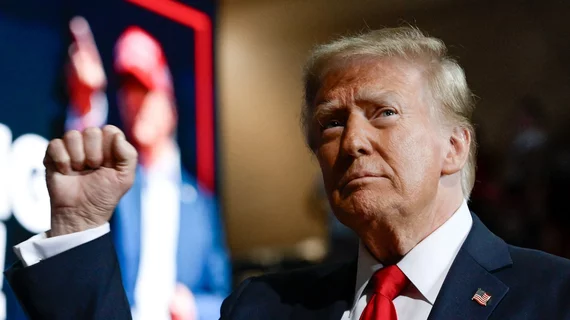Trump signs executive order to withdraw U.S. from the World Health Organization
President Donald Trump signed a myriad of executive orders during his first two days in office, one of which begins the process for the U.S. to withdraw from the World Health Organization (WHO).
Trump had previously issued a withdrawal in 2020, which was halted by President Biden. The Monday executive order stated the decision to leave WHO is “due to the organization's mishandling of the COVID-19 pandemic ... and other global health crises, its failure to adopt urgently needed reforms, and its inability to demonstrate independence from the inappropriate political influence of WHO member states.”
The order, signed by Trump, further argues the U.S. funds WHO at a rate “far out of proportion with other countries' assessed payments,” adding that China contributes a lower amount despite having a larger population.
Data released by WHO confirms the claim, with the U.S. contributing $1.28 billion in 2022-23. Germany comes in second place at $856 million, followed by the Bill & Melinda Gates Foundation, which contributed $830 million.
WHO is part of the United Nations and is headquartered in Switzerland. The international agency’s mission is to improve and protect the health of all people globally.
In a response, the organization expressed regret over the U.S. withdrawal.
“We hope the United States will reconsider, and we look forward to engaging in constructive dialogue to maintain the partnership between the USA and WHO, for the benefit of the health and well-being of millions of people around the globe,” a spokesperson said.
The U.S. would need to follow the formal withdrawal process, which includes submitting a letter of notification under international treaty agreements and waiting a year for full withdrawal. It's unclear if and when the country will exit.

